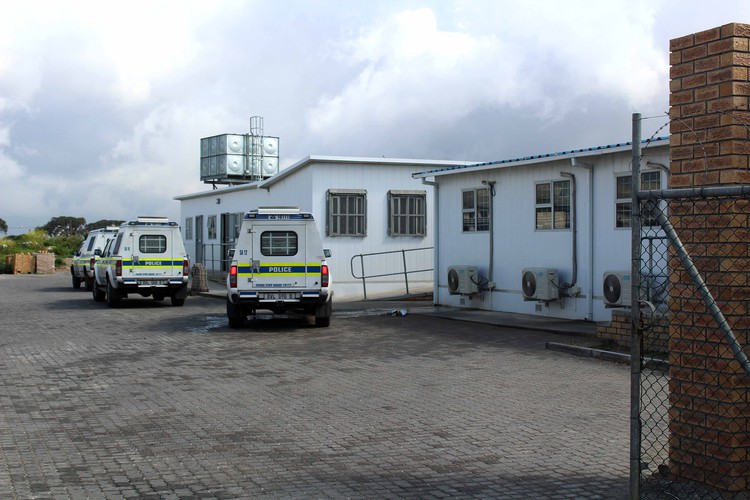Two crime hotspots still without permanent police stations
Five years after Khayelitsha Commission of Inquiry, recommendation to build new station still not implemented
Residents living in two areas whose recorded murders are among the highest in the country are still without permanent police stations.
In Makhaza residents told GroundUp they spent at least R40 for a round trip to the nearest police station in Harare. The land earmarked for the construction of a new police station in Makhaza remains empty. While in Samora Machel, the Community Policing Forum spokesperson said he is satisfied with the temporary station placed there ten months ago, which serves thousands in the area.
In the 2018/19 crime statistics, Samora Machel falls under Nyanga and Makhaza falls under Khayelitsha. Nyanga is the precinct with the highest number of murders in the country at 289. Not far behind, in third, was Khayelitsha with 221 murders.
Makhaza
The land where the police station is meant to be built is still vacant. Despite attempts to find out more about the expected construction, the South African Police Service (SAPS) has been tight-lipped about exactly when building would start. This comes nearly five years after the Khayelitsha Commission of Inquiry made findings and recommendations.
Recommendation 19 of 20 made by the Commission stated that a new police station should be established at Makhaza. The community has been waiting for its station since 2004.
But in 2019 Makhaza residents still have to travel by taxi to the nearest station in Harare — more than 5km away — to report a crime.
National police spokesperson Colonel Athlenda Mathe said: “Makhaza police station is in the planning and design phase, at a very advanced stage.” She provided no time frames for the construction of the building.
The Social Justice Coalition (SJC) has been at the forefront of campaigning for the implementation of the Commission’s recommendations. The SJC’s head of policy and research, Dali Weyers, said the organisation had “no correspondence with or from SAPS” about the construction of the Makhaza police station.
Weyers said that the SAPS annual report for 2016/17 stated that it had failed to acquire the land in Makhaza for the station. But a more recent report for 2017/18 stated that the land acquisition had been finalised by 20 February 2018. “The ‘very advanced stage’ response from SAPS, without additional and clear time frames is problematic,” said Weyers.
Samora Machel
In December 2018, GroundUp reported that a temporary police station had been placed in Samora Machel. This after Minister of Police Bheki Cele announced in May last year that the area would get a permanent police station by 2023. But some residents in the area say the temporary station has already brought much-needed relief.
“Let us get one thing straight, Samora does not have a temporary or mobile police station; we have a fully fledged police station with a full complement of staff members,” said Samora Machel’s community policing forum spokesperson Bongani Maqungwana.
He said it was important to mention that Samora Machel stopped falling under Nyanga since December. “Our police station services Sweet Home Farm, Kosovo and Heinz Park. The recent crime statistics are a reflection of 2018/2019 when Samora was still under Nyanga,” he said.
Maqungwana said that since the station was opened, there has been a significant decline in crime. “Even though we are still struggling with the increment of officers and vehicles, I have to compliment them because our police are visible. They have an open door policy so the community feels free to report crimes.” He said the brick building, expected next year, is still needed. The current station consists of prefabricated structures.
Colonel Mathe told GroundUp that the prefabricated structures are an “interim solution” but did not say when the permanent station would be built.
Support independent journalism
Donate using Payfast

Don't miss out on the latest news
We respect your privacy, and promise we won't spam you.
Next: Debt: Can you be charged more in interest than your original loan?
Previous: 100-year-old man dies two months after getting his first house
© 2019 GroundUp.
This article is licensed under a Creative Commons Attribution-NoDerivatives 4.0 International License.
You may republish this article, so long as you credit the authors and GroundUp, and do not change the text. Please include a link back to the original article.

